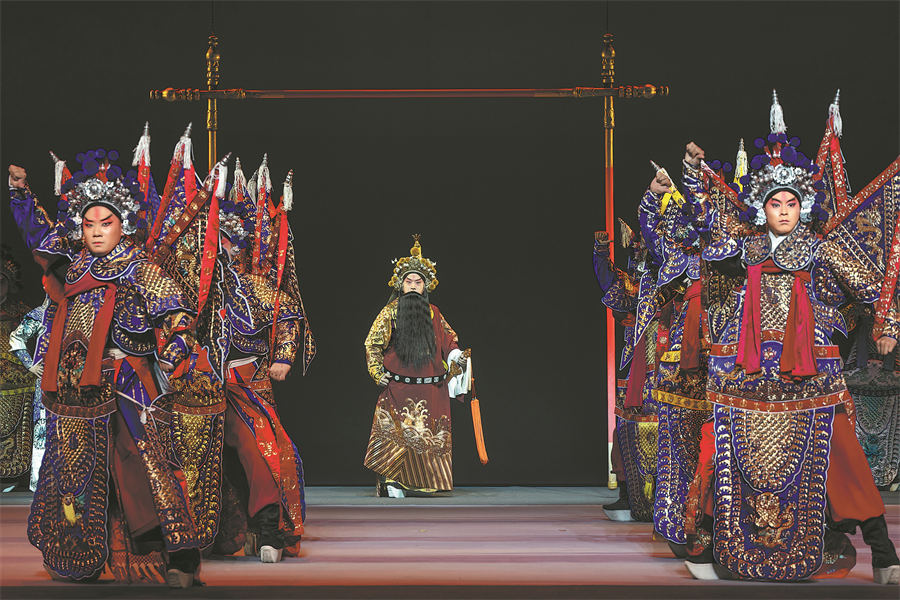Breaking traditional barriers


Chinese opera director brings a contemporary perspective to a classic art form, injecting vitality and modernity to attract younger generations, Chen Nan reports.
Traditional Chinese opera, with its ornate costumes, stylized movements, and centuries-old stories, may seem worlds apart from the energy of today's youth culture. Yet, in the hands of director Li Zhuoqun, this ancient art form has found an unexpected vitality.
With a perfect blend of respect for heritage and a bold eye for innovation, Li is proving that traditional Chinese opera can be more than a relic of the past. It can be transformed into a vibrant stage where timeless emotions are expressed in fresh, relevant ways.
"I've always considered traditional Chinese opera as something much more than just a nostalgic art form," Li says. "It has so much beauty, drama and power. Why can't it be modern too? Why can't it speak to today's world?"
In collaboration with the National Centre for the Performing Arts, Li's latest Peking Opera production, Yan Zhenqing, premiered on Wednesday, featuring artists from the Jingju Theater Company of Beijing.
Set against the turbulent backdrop of the An-Shi Rebellion (755-763) during the Tang Dynasty (618-907), the production tells the story of Yan Zhenqing, a man who made the ultimate sacrifice for his country. Renowned for his calligraphy works, it's Yan's courage on the battlefield, as well as his stand against corruption at 75, that deeply resonate with modern audiences.
With a dazzling stage design and the support of cutting-edge multimedia technology, Li brings this iconic historical figure to life, creating a visual feast that enhances the drama while honoring the core traditions of Peking Opera.
























